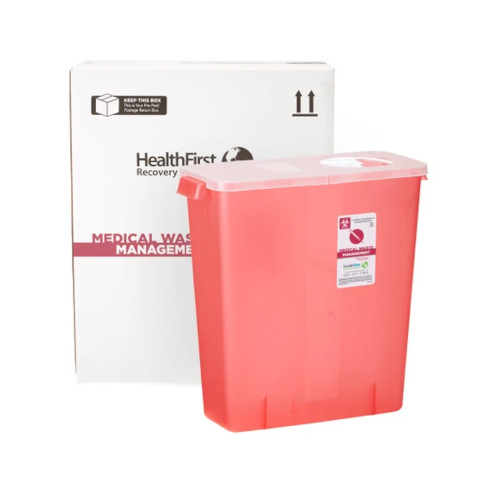The Value of Appropriate Waste Disposal Practices
From the effects of incorrect waste disposal on our environment to the lasting effects for future generations, the value of adopting lasting waste monitoring methods can not be overemphasized. By exploring the environmental impact of irresponsible waste disposal, the advantages of reusing initiatives, and the significance of area engagement in waste decrease initiatives, a deeper understanding of why proper waste disposal practices are vital arises.
Ecological Influence of Improper Disposal
Improper disposal of waste presents a significant hazard to the setting as a result of its detrimental results on ecosystems and human health. When waste is not correctly managed, it can cause air pollution of the water, air, and dirt, triggering injury to numerous plant and pet varieties. click here. Chemicals and toxins from incorrectly disposed waste can permeate right into the ground, infecting groundwater resources and affecting the health of both wildlife and humans
Moreover, the build-up of waste in land fills generates greenhouse gases like methane, adding to climate change and global warming. Improper disposal practices likewise lead to littering, which not only breaks down the visual worth of the atmosphere but can likewise damage wildlife via consumption or entanglement.
To alleviate these ecological impacts, it is important for individuals and neighborhoods to take on appropriate garbage disposal practices such as reusing, composting, and liable contaminated materials disposal. By taking these steps, we can assist safeguard communities, protect all-natural resources, and secure human wellness for future and current generations.
Benefits of Recycling Programs
On a regular basis getting involved in reusing programs provides many benefits for both the setting and culture as a whole. This conservation of resources not only helps in preserving ecological balance yet also adds to sustainable growth.
Furthermore, reusing plays an important duty in minimizing energy usage and greenhouse gas emissions. The manufacturing of goods from recycled products normally requires much less energy compared to making from virgin sources - medical waste removal. Consequently, the carbon footprint connected with the production procedure is considerably lowered, aiding in the battle versus climate adjustment
Additionally, reusing programs develop job possibilities in the reusing industry, advertising financial growth and social welfare. By urging the recycling and reuse of materials, these programs sustain a circular economic climate that decreases waste generation and makes best use of resource performance, ultimately causing a cleaner, greener future for generations to come.
Contaminated Materials Monitoring Standards
Executing efficient unsafe waste management guidelines is critical for minimizing ecological and health threats linked with the improper disposal of hazardous materials - click here. Correct handling, therapy, and disposal of harmful waste are vital to protect against contamination of dirt, water sources, and air
One secret guideline is appropriate labeling of harmful waste containers to make sure risk-free handling and transport. Furthermore, facilities should comply with strict storage requirements to prevent leaks, spills, or accidents that could jeopardize human wellness and the setting. Normal training programs for staff members on unsafe waste monitoring techniques are additionally vital to ensure compliance with regulations and promote a culture of security.
In addition, contaminated materials must be segregated based on its residential properties to stop chemical reactions that might bring about dangerous circumstances. Applying a thorough waste radar can help check the motion of hazardous products from generation to disposal, making sure transparency and accountability. By complying with these guidelines faithfully, sectors and services can add to a more secure and cleaner setting for future and present generations.
Neighborhood Involvement in Waste Decrease
To successfully attend to the ecological and health risks associated with harmful waste administration, involving the area in waste reduction initiatives is critical. Area participation plays a crucial role in promoting sustainable waste administration methods and promoting a culture of environmental duty. By enlightening locals regarding proper waste segregation, recycling, and composting techniques, communities can substantially reduce the quantity of waste sent to landfills, therefore decreasing ecological air pollution and preserving natural deposits.
Area involvement in waste decrease programs likewise aids in elevating awareness about the importance of waste minimization and encourages individuals to adopt environment-friendly behaviors in their day-to-days live - medical waste removal service. Collaborative efforts in between local authorities, waste management firms, and area participants can bring about the execution of reliable waste decrease approaches customized to the details demands of each area or community
In addition, area involvement cultivates a feeling of possession and responsibility among citizens, equipping them to take aggressive actions in the direction of lowering waste generation and promoting a cleaner, healthier setting for current and future generations. By working together in the direction of typical waste reduction objectives, communities can make a substantial influence on alleviating the unfavorable effects of improper garbage disposal methods.

Future of Sustainable Waste Practices
Conventional waste disposal methods, such as landfilling and incineration, are no much longer sustainable in the long term due to their significant ecological impacts. Relocating onward, the future of sustainable waste practices exists in embracing a circular economic climate approach, where resources are recycled, reused, or repurposed to lessen waste generation.
Technical innovations play a crucial role in forming the future of sustainable waste methods. Advanced waste sorting and reusing technologies can assist improve the performance of waste management processes, permitting for the recuperation of useful sources from waste streams. Furthermore, the fostering of biodegradable materials and composting approaches can help decrease the quantity of natural waste ending up in land fills, therefore mitigating greenhouse gas emissions.
Furthermore, advertising customer understanding and education on proper waste segregation and disposal techniques is essential for driving behavior adjustment in the direction of sustainability. By promoting a culture of waste reduction, reuse, and recycling, communities can jointly contribute to a cleaner and healthier setting for future generations.

Final Thought
To conclude, proper waste disposal methods are crucial for reducing environmental influence and advertising sustainability. By applying reusing programs, taking care of contaminated materials appropriately, and encouraging community participation in waste decrease efforts, we can work in the direction of a cleaner and much healthier setting. It is necessary for organizations, federal governments, and individuals to prioritize lasting waste practices for the future health of our world.

From the consequences of inappropriate waste disposal on our environment to the long-lasting effects for future generations, the value of adopting lasting waste administration practices can not be overstated. By exploring the ecological influence of reckless waste disposal, the advantages of recycling efforts, and the relevance of community involvement in waste reduction efforts, a deeper understanding of why correct waste disposal practices are essential emerges.
By informing locals regarding appropriate waste segregation, recycling, and composting methods, neighborhoods can considerably minimize the amount of waste sent to article landfills, consequently lessening ecological contamination and saving natural resources. (click here)
Relocating onward, the future of sustainable waste practices lies in welcoming a circular economic climate method, where sources are recycled, recycled, or repurposed to reduce waste generation.
Advanced waste sorting and recycling innovations can aid improve the effectiveness of waste monitoring processes, enabling for the recuperation of useful sources from waste streams.